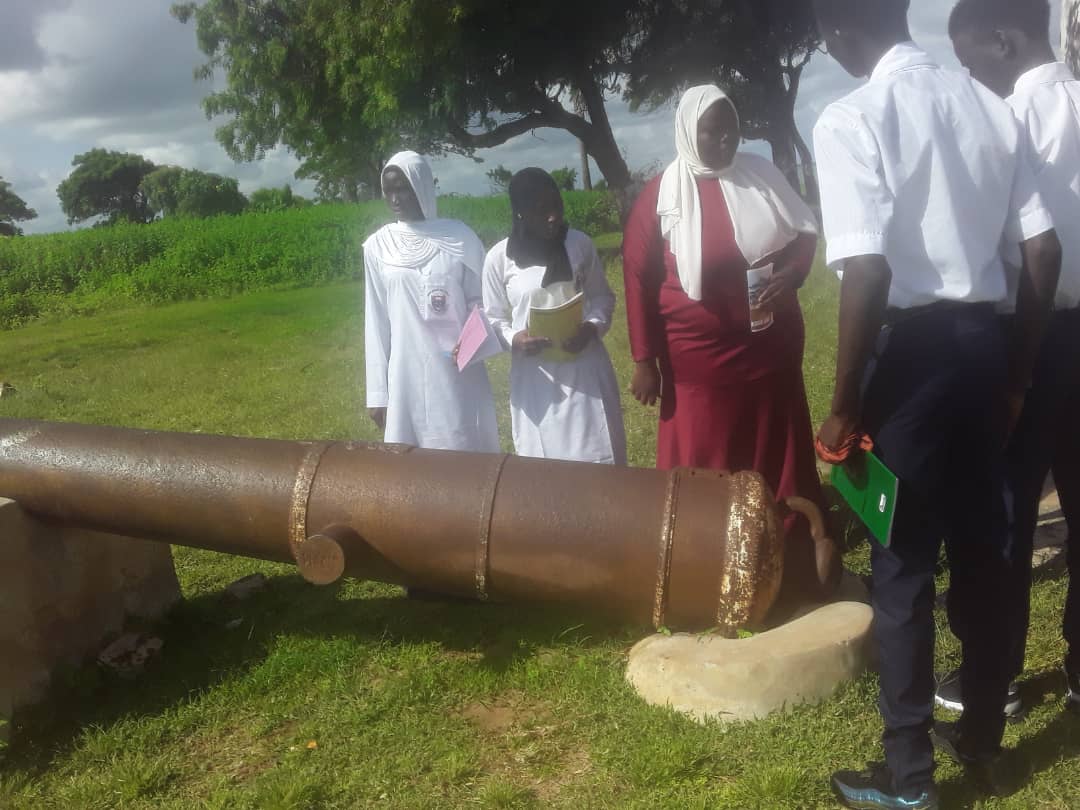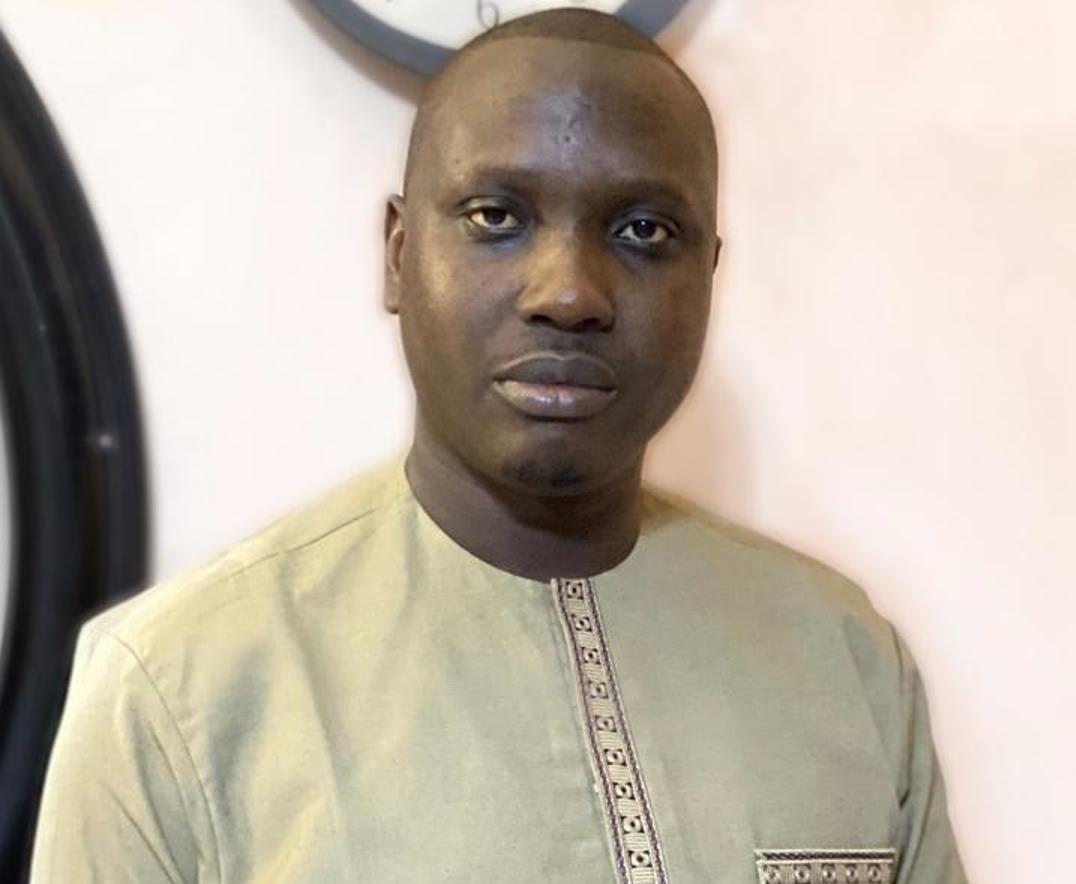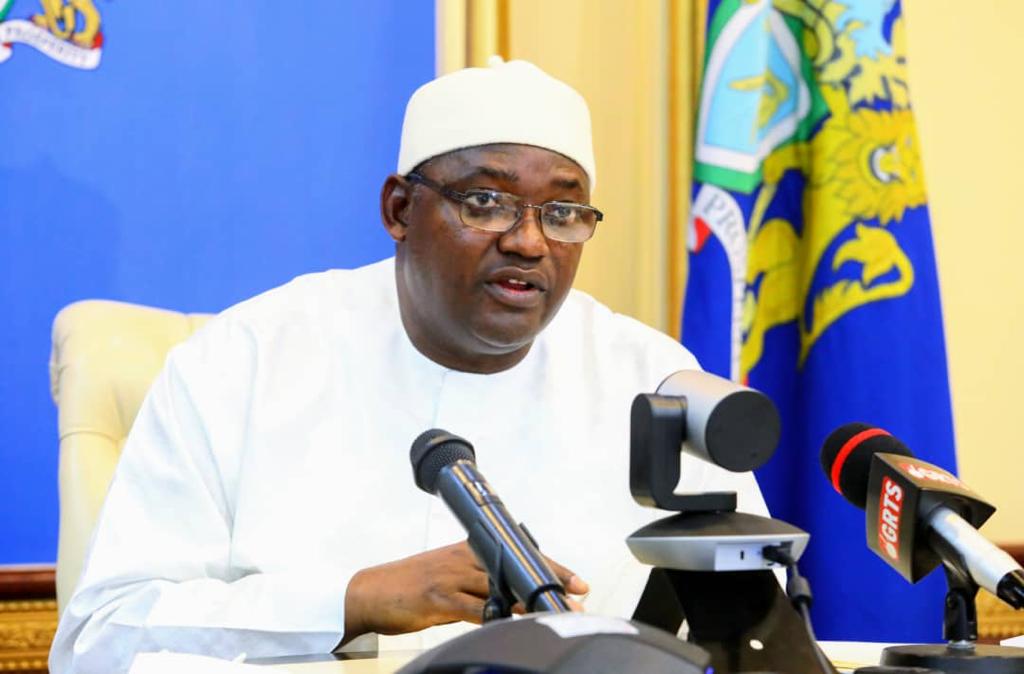By Yunus S Saliu
Students from Essau Senior and Albreda Senior Secondary Schools respectively reengaged in a series of school based activities centered on the Outstanding Universal Values of the UNESCO World Heritage Sites found in the communities, namely – Kunta Kinteh Island of Juffureh and the Fort Bullen in Barra.
The two days event held in both Barra and Juffureh/Albreda last Friday and Saturday was an interface between tour guides and school children from communities where the UNESCO World Heritage Sites are located and it was funded by the German Commission for UNESCO and German Federal Foreign Office through the SOS African Heritage Project 2021.
The objective is really to strengthen world Heritage Education in the country – The Gambia has two sites – Kunta Kinteh Island and Stones Circle of Senegambia.
However, about 60 students, tour guides and heritage site attendants highlighted some basic historical information about the role of Fort Bullen in the enforcement of the Abolition Act of 1807, which stopped trading in human beings in the British Empire, and also the negative effects that slavery has brought on African communities from the 15th to 19th centuries.
During the course of the two-day event, National Centre for Arts and Culture (NCAC) engaged the students and guides at fort Bullen and Kunta Kinteh Island, Juffureh to amplify World Heritage Education through tour of the sites, answering of worksheets based on the significance of the sites and then drama sketches by the students.
At Fort Bullen UNESCO World Heritage Site, Barra, students of Essau Senior Secondary School mounted a brief drama on the abolition movement led by Granville Sharpe and William Wilberforce to end the inhumanity trade in slave across the Atlantic.
According to the students’ drama storyline, in one of the scenes, a student actor entered the House of Commons during their long debate on the Abolition Act to appeal strongly to the MPs to vote to enact the anti-slavery law. “How can it be right for one human to sell another human, are we all not created by God? asked the abolitionist while some MPs shouting ‘yea, yea.’ In another scene, a student acted as Lord Mansfield who in his 1772 judgment said that escaped slave cannot be enslaved again which legal decision made history and began the decline of slave trade.
At Albreda water front overlooking the Kunta Kinteh Island UNESCO World Heritage Site, students of Albreda Senior Secondary School performed a drama on the guilty Gambian Chief or King who sold his own people to the European slave traders, and who became remorseful and apologized to his own people undertaking never to sell his own people again.
“This scene shows that our African Chiefs and Kings were also in some ways abolitionists as those who sold their own people later recanted and stopped dealing in human beings,” a history teacher and audience of tour guides, students and villagers explained.
The two days event was indeed very interesting according to the students and guides who took part as it showed them how Gambian UNESCO World Heritage Sites matter in improving educational attainment.
Elaborating on the project, Hassoum Ceesay, Director General of NCAC explained that the project is to help improve educational attainment through the study and appreciation of the significant of these sites.
“And they did tour the heritage sites supported by the guides trained with the support of the German Commission for UNESCO and German Federal Foreign Office through the SOS African Heritage in its 2020 project. This will help the students see a link within world heritage and their educational curriculum in history, geography, science, art and craft among other subjects,” DG Ceesay added.
He therefore thanked all partners, including German National Commission, schools, the elders of the host communities in Barra, Juffureh/Albreda and Wassu, Ministry of Basic and Secondary Education and of course, staff of NCAC.





